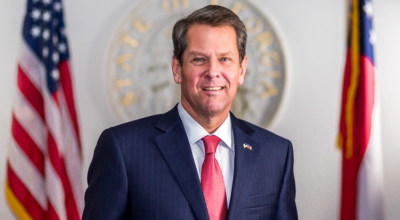Bulloch: State’s budget will be toughest
Published 2:57 pm Friday, January 7, 2011
If you thought last year’s state budget was tough, Georgia Sen. John Bulloch said wait until lawmakers try to tackle this year’s budget.
“The 2012 budget will be the toughest one we have to address yet,” said Bulloch, a Republican from Ochlocknee who returned to the Senate after being unopposed in last year’s election.
The General Assembly returns on Monday, Jan. 10. Bulloch serves on the Appropriations and the Banking and Financial Institutions committees, as well as its chairman of the Agriculture and Consumer Affairs Committee and vice chairman of the Natural Resources and the Environment Committee.
During a recent interview, Bulloch enumerated how the General Assembly wrestled with the last fiscal year’s budget that included funding cuts in all areas of the budget, but most evident in education, which accounts for 51 percent of the state budget.
The state cuts reached Decatur County last year with teacher and staff furlough days, and the county Board of Education increased its millage rate and dipped into its reserves to try to cover its already-squeezed budget.
“Every where we cut, there’s going to have to be some adjustments on the local level,” Bulloch said.
In 2010, Bulloch said legislators used every area they could find any kind of money. Some were reserve funds. Some were stimulus money from Washington, which was $1.5 billion in one-time money, and $450 million were notes from the Georgia Environmental Finance Authority that the state sold, but which will have to make good on in the future.
Bulloch said there are signs of the economy improving, such as the projected 4 percent growth for fiscal year 2011 that has actually been exceeded in the first five months by 3.4 percent. He said that growth—if it keeps pace—translates roughly into $550 million more in the state budget.
Along with education, health care, prisons and the state’s indebtedness responsibilities, Bulloch said budget writers still have to cut more than $1.5 billion, or raise taxes, which he said he’s not in favor of.
But legislators have been getting cries from some not to touch education any more.
Bulloch, who has two daughters in education, said education is not off the chopping block, just as health care and further down-sizing state government are not off the chopping block.
“We got to look at education. What are those programs that we’ve created in the last 20 or 30 years that are not really essential for core curriculum,” said Bulloch, adding later, “This is the hottest issue out there because it affects all of us.”
Other issues
Other legislative issues Bulloch said will likely come up is a restructuring of the state’s tax structure.
Bulloch said legislators will have an up-or-down vote on commission recommendations on the restructured tax system, which he said will be a more consumptive-oriented taxing system that places more of a tax on goods and services rather than income and investments.
A portion of what the commission is looking at are putting more exemptions of agricultural and industrial raw materials, and not taxing energy cost for industries, which would make Georgia more competitive in attracting jobs-producing industries, Bulloch said.
These shifts in taxes are supposed to be revenue neutral. One area on the table would be eliminating the sales tax exemption on groceries.
“It will be a shift. Somebody is going to have to be paying that they haven’t been paying, and others where they won’t be paying for something that they have been paying,” Bulloch said.
Another issue is redistricting, which legislators may be called back in special session in the summer.
Georgia is gaining one congressional seat, but that growth in Georgia occurred mostly in the northern areas of metro-Atlanta. Some southwest Georgia counties are projected to have lost population, so they may be some juggling of state House and Senate, and the U.S. House of Representative districts. It’s possible the southwest Georgia districts will likely become larger in terms of area, Bulloch said.
Georgia is also expected to become one of several states that will tackle immigration legislation similar to what Arizona passed. Bulloch, a farmer, was appointed to an immigration study committee and represents the agriculture interest if legislation is proposed in the General Assembly.
“The emphasize in these meetings that we are dealing with is one word, and that’s ‘illegal’,” Bulloch said. “We need to have control over our borders and not have people come in outside that system that’s legal.”
One fix the committee is studying is to require any industry—not just agriculture and building contractors—to verify that all their new hires are legal immigrants or U.S. citizens.
If Georgia should fashion a law after Arizona’s, Bulloch said he’s against any hint of profiling in the intent of the law and said “I think you need to have broken the law” if your residency is questioned by officials.
The one issue that the General Assembly is not going to address this year is the statewide water plan. Bulloch said the Environmental Protection Division didn’t meet its timeline and has postponed the final plan to where the legislators will likely address it in 2012.
“I think most everybody agreed we were rushing things too much,” Bulloch said of the statewide water plan.
However, Bulloch said the state needs to still eye the water from the Tennessee River. Despite what some thought was a gimmick to tap into the Tennessee River’s water, Bulloch there’s still some interest in it that would benefit Atlanta and would be the cheapest alternative.
“Atlanta is the engine that drives Georgia, whether we like it or not,” he said.




